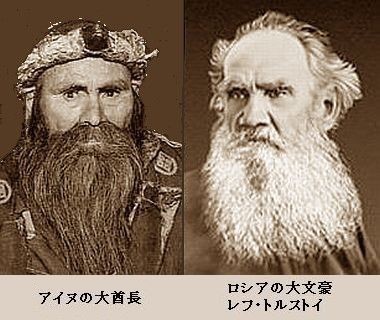|
|
Link #2101 |
|
Knight Errant
Join Date: Dec 2007
Location: Dublin, Ireland
Age: 35
|
@SeijiSensei: Turkish is a central asian language (shares a lot in common with Kazakh, Turkmeni etc.), and part of the altaic branch of languages. It's very disputed, but this branch may include Japanese and Korean.
However, the two languages do share some similarities: 1. They are both Subject-Object-Verb, IE I the box open. Most european languages are Subject verb object, IE I open the box. 2. They are both Agglutinative, IE they express meaning by modifying words and adding new particles (English only does this in a limited fashion, EG the plural -es) 3. They both use systems of honorifics to classify your relation to another person Overall, both languages seem to have similiar grammar, which may account for what you're referring to. This does not necessarily imply the two languages are related, however. |
|
|

|
|
|
Link #2102 | |
|
Senior Member
Join Date: Dec 2011
Location: Half Australia, Half Tokyo, Bits and pieces in US
|
Quote:
I don't think Turkey is as popular a destination as other countries yet. however, I do understand how it could be easy for the Japanese to learn their language if the grammatical structure is similar. Japanese and Koreans seem to have a easy time learning each other's languages too because the structure is similar. So if Turkish is along the same line, then, sure, it must be so. I do notice that the Turkish in japan seem to be better in Japanese than the English speakers... |
|
|
|

|
|
|
Link #2103 | |
|
Obey the Darkly Cute ...
 Author AuthorJoin Date: Dec 2005
Location: On the whole, I'd rather be in Kyoto ...
Age: 66
|
Quote:
http://linguistics.byu.edu/classes/l...s/japanese.htm Japanese, being a very isolated language over a long time period, probably shot off from ancient Korean. After that, it was a classic "Galapagos Island" situation punctuated by the regional mountains and rivers that slice up Japan. I've never heard of Turks being used in Japanese entertainment that way either ...
__________________
Last edited by Vexx; 2012-02-05 at 12:40. |
|
|
|

|
|
|
Link #2104 |
|
YOU EEDIOT!!!
Join Date: Apr 2009
Location: I'm right behind you
Age: 41
|
Here's some more information on the language classification debate. The editors of this Wiki article seem especially supportive of Goguryeo, an extinct language of Korea. Incidentally, I've heard the name "Korea" actually derives from Japan's use of the name "Koryo", which in turn derives from the Goguryeo state. (Koreans call their country "Hanguk".)
The Korean hypothesis seems most likely to me, especially just by looking at a map. Jared Diamond also went into some detail about this in his Guns, Germs and Steel. This may seem crazy, but a friend of my parents once went to see the Mayan ruins in Mexico (well, I don't know about just once; he travels a lot). He actually said that some Japanese tourists there said they could understand the Mayan language at times! There might be some considerable hyperbole going on, but then the Mayans and other Native Americans also originated in northeast Asia. In any case, many NA languages also use the subject-object-verb format, as well as much agglutination. In any case, here's a discussion postulating a link between the Altaic languages mentioned by Vexx and the Eskimo-Aleut languages. |
|
|

|
|
|
Link #2105 | |
|
勇者
Join Date: Dec 2006
Location: Tesla Leicht Institute
Age: 34
|
Quote:
__________________
|
|
|
|

|
|
|
Link #2106 |
|
Banned
Join Date: Nov 2010
Location: Dai Korai Teikoku
|
Wrong. It came from the Arab traders recording Goryeo in their records. Believe it or not, Goryeo was easternmost major port in the Arabic trade system, and there are plenty of records of large Arab-towns being established in Korea before the Mongol invasions.
|
|
|

|
|
|
Link #2107 |
|
うるとらぺど
Join Date: Oct 2004
Age: 44
|
Not surprising, the Arabs manage to get to China and they were employed in the Chinese court administration. They were also instrumental in the establishment of the Yuan Dynasty. How else did you think that an illterate Barbarian Horde managed to establish a ruling caste ?
|
|
|

|
|
|
Link #2110 | |
|
( ಠ_ಠ)
Join Date: Jul 2006
Location: Somewhere, between the sacred silence and sleep
|
Quote:
Can you imagine the batting average this fella could crank out in the major league!? 
__________________
|
|
|
|

|
|
|
Link #2111 | |
|
Undead Fansub TL/TLC
 Fansubber FansubberJoin Date: Apr 2008
Location: Hawaii
Age: 43
|
Quote:
Anyway, thanks for uploading the video! I really enjoyed it. 
|
|
|
|

|
|
|
Link #2113 | |
|
廉頗
Join Date: Feb 2004
Location: Massachusetts
Age: 34
|
Quote:
|
|
|
|

|
|
|
Link #2115 |
|
勇者
Join Date: Dec 2006
Location: Tesla Leicht Institute
Age: 34
|
Well they are the native people in Hokkaido. Hokkaido was not originally Japanese and was annexed during the Meiji era. The Ainu does have their own language and culture, but from what I understand it is dying. Genetic wise I believe the closet to the Ainu is the Tibetan.
__________________
|
|
|

|
|
|
Link #2116 | |
|
Senior Member
Join Date: Dec 2011
Location: Half Australia, Half Tokyo, Bits and pieces in US
|
Quote:
Its a pity I didnt pay attention in class though. As mentioned, they are more Tibetan/Russian as opposed to the Okinawan being more South East Asian. (Okinawan language/ dialect is totally different to standard Japanese and use words like Chanpurū which is very close to the Malay or Indonesian word campur.) However, it is difficult to say who are the indigenous people because HOkkaido has the Ainu, Honshu Islands are mostly Yamato who are said to be of Korean roots, and the Okinawan who are South East Asian/ Spanish roots. Ainu and Okinawan tend to be considered indigenous because they are the minority. Ainu - the guy on the left is Ainu, the left is Russian(Tolstoy)  Okinawan (comedian and golfer Miyazato Ai)   Yamato Minzoku (People from the mainland, most famous example is the empirical family)  IMO, the photos above really remind us that Japan is actually just another archipelago of Islands who all have different roots and cultures. 
|
|
|
|

|
|
|
Link #2117 | |
|
Knight Errant
Join Date: Dec 2007
Location: Dublin, Ireland
Age: 35
|
Quote:
Correction, native to Hokkaido and historically northern Honshu. They also lived in parts of Siberia, including the Sakhalin peninsula and Kuril Islands. They were gradually pushed back by more technologically advanced Japanese invading from the south. @Shinji01: I wouldn't say the Ainu have any relation to the Russians. Russians were only present in Siberia in the last ~300 years. Most Russians do not look that much like Leo Tolstoy. Genetic studies indicate the Ainu are most related to other siberian peoples (including the Tibetans). |
|
|
|

|
|
|
Link #2118 |
|
Senior Member
 Author AuthorJoin Date: Mar 2011
Location: Cainta, Rizal, Philippines
|
Say, I don't know if it has been posted yet, but I heard it is possible in Japan for the guy to bear the girl's surname upon marriage, though I'm not sure of the conditions required for this to happen.
All I know is that the guy must keep the girl's name if: 1. The girl's family is richer and/or more influential than the guy's, or 2. The girl has no male siblings to bear her family's name. Could somebody please clarify this? |
|
|

|
|
|
Link #2119 |
|
Knight Errant
Join Date: Dec 2007
Location: Dublin, Ireland
Age: 35
|
This does occur. Primarily if the man marries into a wealthy or prestigious family that has no sons of their own. They may wish to carry on their family legacy, but know they cannot do so with a daughter.
I believe there is a similiar chinese practice. |
|
|

|
|
|
Link #2120 | |
|
廉頗
Join Date: Feb 2004
Location: Massachusetts
Age: 34
|
Quote:
Further, the paleolithic inhabitants of Japan were something more like the Ainu, and gradually were assimilated (meaning, they still do contribute to modern Japanese genetic heritage) by the later waves of migrants out of the continent during the Yayoi period. Some of these Jomon-era hunter gatherers lived in the far north, however, and preserved their culture without being assimilated, perhaps due to the difficulty in maintaining the agricultural society the Yayoi had imported in the colder climate. These people became the Ainu. |
|
|
|

|
 |
| Tags |
| culture, discussion, japan, japanese culture |
|
|